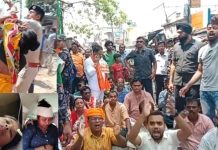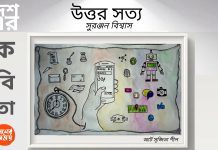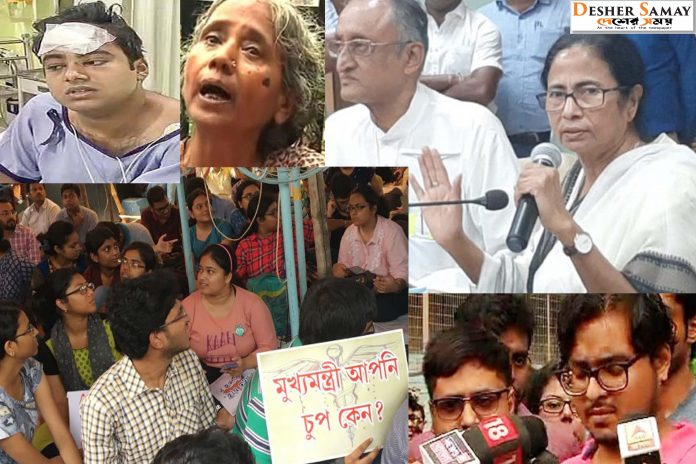by Our Special Correspondent
It is a shame that one day we have to write criticism against the most nobel professionals of the world , the doctors.In wake of NRS incident it is clear that the doctor community now can be branded as ‘murderers’. In films , fictions we had seen in shield of their professional degree doctors can kill patients. But here they killed innocent , minor patients as murders by not treating them for their own demands. Had they treated patients , at least who needs emergency treatment , they would have remained above the criticismLegally, in India none is allowed to take any action in name of fundamental right when it infringes the right of others. Here terminally ill patients too are at receiving ends.Hence healthcare workers (HCW) like other emergency force are not allowed to go on strike.
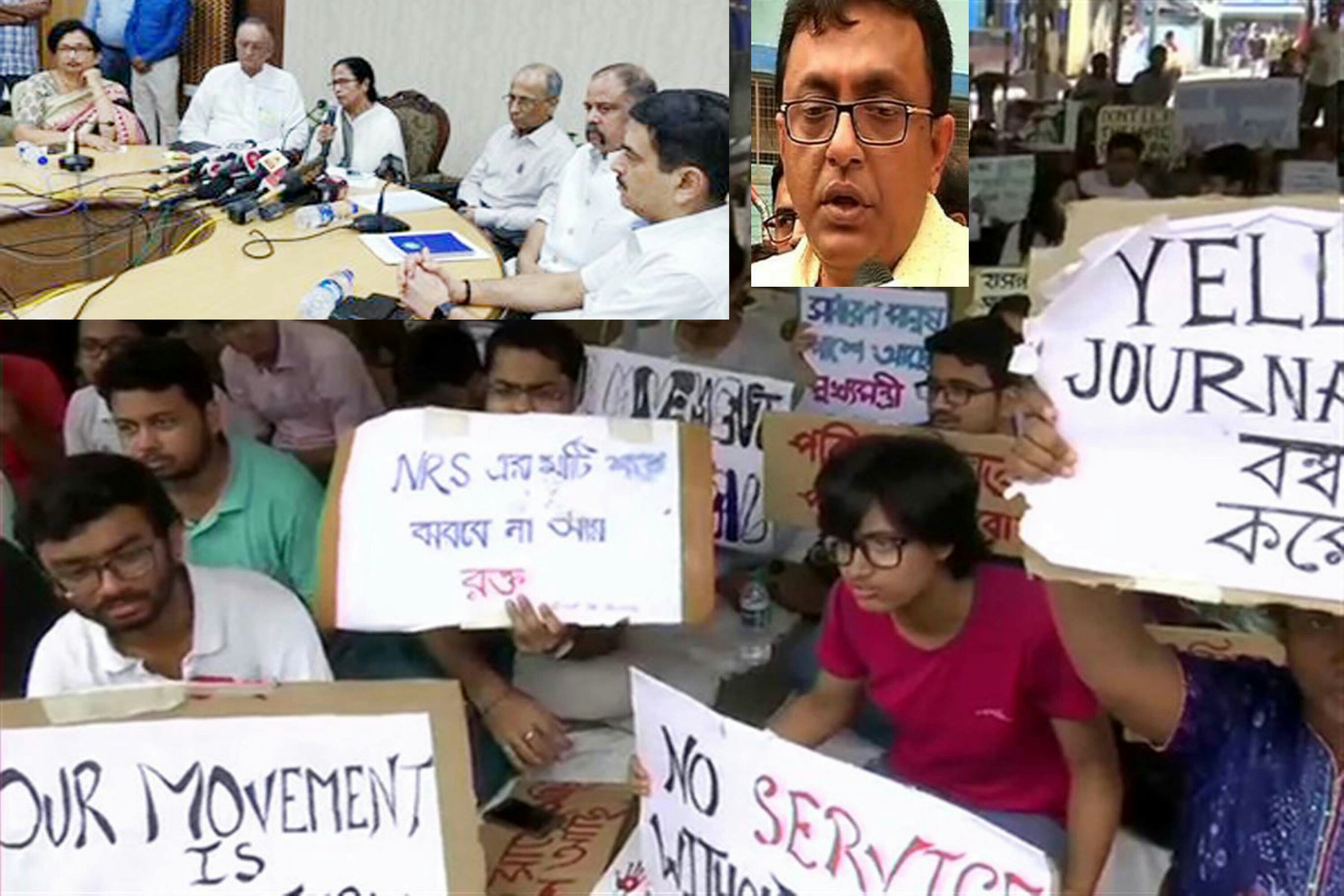
We also have to analyse the funding, political support and other vicious force that are helping these striking doctors who may be great in their field but too great as businessman to turn their knowledge into cash.Very few doctors strikes a balance between their urge of good living and profession’s dignity and service .
Background
Doctor and healthcare worker (HCW) strikes are a global phenomenon with the potential to negatively impact on the quality of healthcare services and the doctor-patient relationship. Strikes are a legitimate deadlock breaking mechanism employed when labour negotiations have reached an impasse during collective bargaining. Striking doctors usually have a moral dilemma between adherence to the Hippocratic tenets of the medical profession and fiduciary obligation to patients. In such circumstances the ethical principles of respect for autonomy, justice and beneficence all come into conflict, whereby doctors struggle with their role as ordinary employees who are rightfully entitled to a just wage for just work versus their moral obligations to patients and society.
Discussion
It has been argued that to deny any group of workers, including “essential workers” the right to strike is akin to enslavement which is ethically and morally indefensible. While HCW strikes occur globally, the impact appears more severe in developing countries challenged by poorer socio-economic circumstances, embedded infrastructural deficiencies, and lack of viable alternative means of obtaining healthcare. These communities appear to satisfy the criteria for vulnerability and may be deserving of special ethical consideration when doctor and HCW strikes are contemplated.
Summary
The right to strike is considered a fundamental right whose derogation would be inimical to the proper functioning of employer/employee collective bargaining in democratic societies. Motivations for HCW strikes include the natural pressure to fulfil human needs and the paradigm shift in modern medical practice, from self-employment and benevolent paternalism, to managed healthcare and consumer rights. Minimizing the incidence and impact of HCW strikes will require an ethical approach from all stakeholders, and recognition that all parties have an equal moral obligation to serve the best interests of society. Employers should implement legitimate collective bargaining agreements in a timely manner and high-handed actions such as mass-firing of striking HCWs, or unjustifiable disciplinary action by regulators should be avoided. Minimum service level agreements should be implemented to mitigate the impact of HCW strikes on indigent populations. Striking employees including HCWs should also desist from making unrealistic wage demands which could bankrupt governments/employers or hamper provision of other equally important social services to the general population.
Strike is a legitimate form of collective protest in a democracy. At the same time, the guiding principle of medicine is the alleviation of suffering. Thus the issue of whether doctors should ever strike work is contentious. Some have preached from an ivory tower and advocated against this form of protest (1). Opinions have been expressed that the suffering caused by a strike of doctors violates the ‘raison d’etre’ of the medical profession.
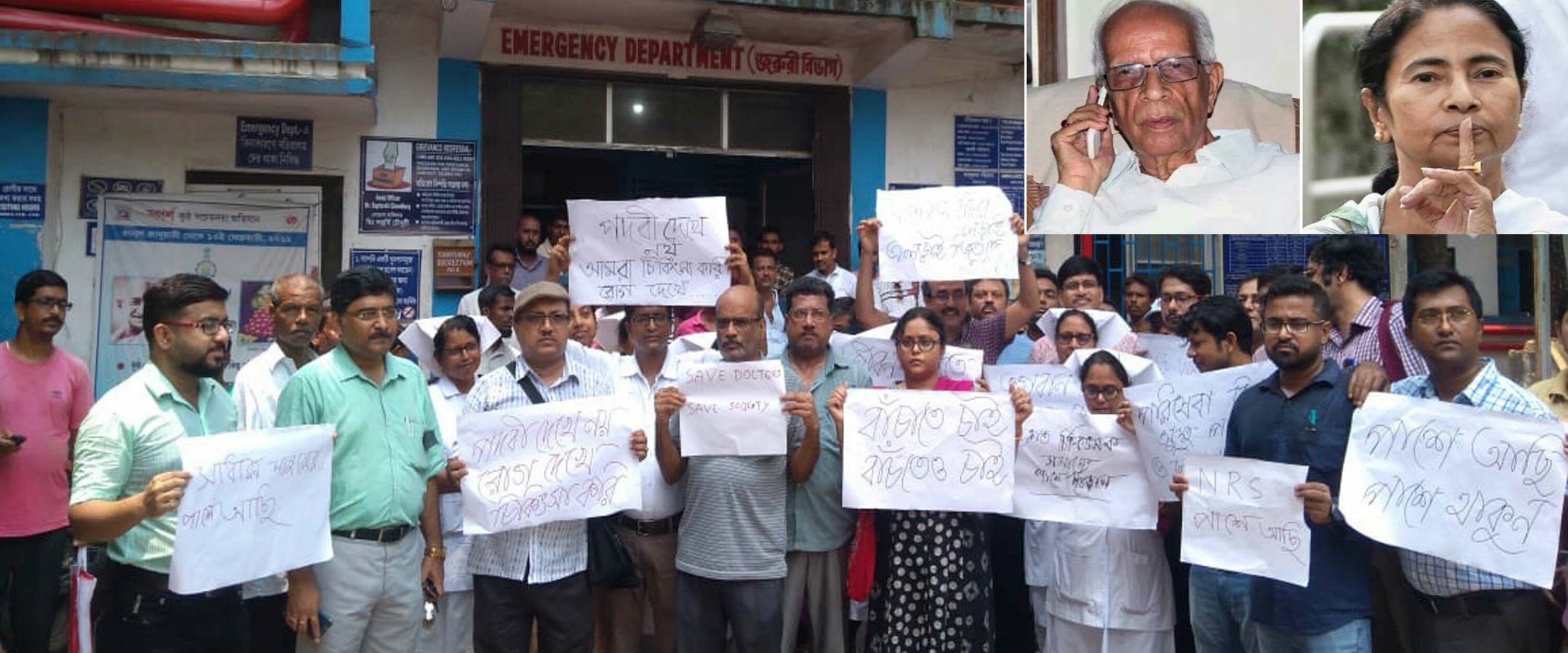
Of course one cannot deny that patient care suffers during a strike by doctors. The scale of harm caused depends upon the role played by doctors in that particular health set-up, the type of cases under treatment, and, of course, the duration of the strike.



